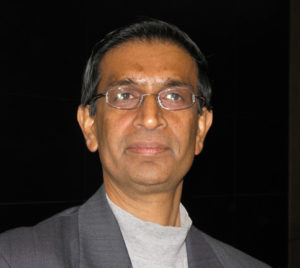All that I am, or hope to be, I owe to my angel mother – Abraham Lincoln

It is not without significance that ‘the mother’ finds herself a prominent presence in literature; if she is not on the cover as the author of a book with pen in hand, then she is present on the dedication page or in the acknowledgement page as the ink in the pen – the influence and source of the author’s product.
The dedication or acknowledgement is no easy consideration and ought not to be taken lightly. The mother is the mother of all creation, the mother of all creative work, especially of first published books. For a first time published writer the dedication may be an easy consideration, but for an internationally recognised author with a string of publications to his/her name, it is another matter. Yet, it continues to happen for such well-known writers to dedicate a work to their mother. Whatever the case, the mother deserves a place.
When the mother appears on the cover of a book, she is there in her own right as the author, in full control, moving words and symbols and images about in order to create the optimum effect. When the mother appears on the cover of a book as author, it is an assertion of her ability and craft. But that appearance on the cover of a book may be more than just a show of ability and craft. The woman in a male dominated world – in a male dominated world of literature, in many cases – starts out at a disadvantage, denying herself the right to be on the cover by sacrificing herself in order to elevate her male spouse, or having to inch her way into the ranks of writers, fighting off challenges, awaiting acknowledgement, acceptance and appreciation, standing shoulder-to-shoulder with the dominant male before breaking the class ceiling.
Hats off to mothers who have made a name for themselves in the literary world: Rajkumari Singh, Jan Lowe Shinebourne, Sharon Maas, Grace Nichols, Paloma Mohamed and Ryhaan Shah, among others.
As mentioned before, the dedication page or acknowledgement page is no trite consideration and ought not to be taken lightly. Here is a just completed book after many hours, days, weeks, months, or years of solitary toiling. Let’s say the book had taken years to produce and now the author looks back at this wonderful piece of creation and is satisfied that he/she is solely responsible for this creation. But the more he/she looks at the work, the more others seem to be staking a claim to the work. And the longer he/she looks, the more names appear as contributor. So the dedication/acknowledgement is a matter of great and grave consideration. And when the mother appears there, it is not without due credit.
Here are some examples of mothers whose influence resulted in the production of books, books that helped in the shaping of Guyanese literature. It is said that the mother of Martin Carter (Violet Eugene Wylde) loved books and enjoyed reciting verses; while N. E. Cameron’s mother wonderful organising ability grounded in religious tenets was foisted on him.
Here are some examples of writers dedicating their books to their mothers and, generally, to mothers. Shammi Nohar dedicated his book “Saudia” to his mother; Gideon Cecil did the same in “Songs of my Soul”; Berkely Semple in “Lamplight Teller”; Julie K. Jailall in “Sharda”; Clive Sankardayal in “The Brown Curtains”. Imam Baksh in “Children of the Spider” dedicated it to his parents; Moses Nagamootoo (Guyana’s current Prime Minister) “Hendree’s Cure” is in memory of “Pa and Ma”. Harry T. Hergash dedicated his book “A Collection of Indian-Guyanese Words & Phrases” to his “paraajee, paternal great-grandmother”, while Donald Trotman dedicated his “Forest Leaves” to the memory of… and Rajkumari Singh, who was the surrogate mother to numerous writers, artists and dramatists.
This is how part of my dedication reads in “The Balgobin Saga”, Hansib Publications (2008) … “to my mother for burying my navel string in the library [National Library]. Thank you, Mom, I didn’t get the chance to say thank you – you died too young, you died before the books of your sons were published. My brother, Sasenarine Persaud, is the author of more than twelve books, many appearing on the shortlist of the Guyana Prize for Literature, while I have authored six books and edited numerous others. The formal education of my mother didn’t go beyond ‘lil a, b, c’, but she managed and she also managed to execute part of her vision for her children. Thank you, Mom.”
Responses to this author telephone (592) 226-0065 or email: oraltradition2002@yahoo.com
What’s Happening:
It is here – a new book, “Guyanese Writers of Indian Ancestry” commemorates the centennial end to indentureship and (Indian) Arrival Day. It is available at Austin’s Book Service and directly from the author. The book will soon be at other locations, including the National Library, hotels and airports.



